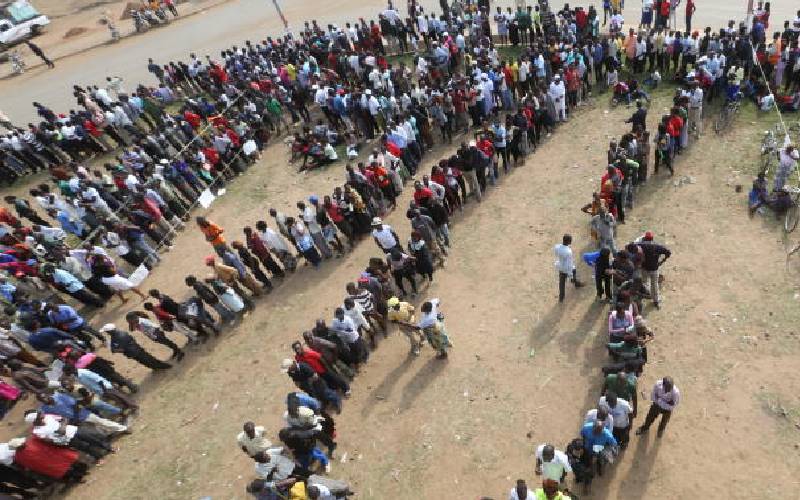×
The Standard e-Paper
Fearless, Trusted News

Voters queue to cast their votes at the Kondele roundabout in Kisumu county in the 2017 general election. [File, Standard]
Every five years, the country gets into a frenzy as we prepare for general elections. All our institutions and individuals focus on voting who will be the next Member of the County Assembly (MCA), MP, senator or women representative.